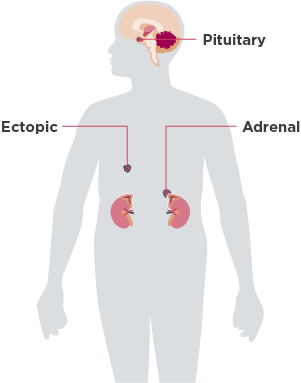Most Important Information About Korlym
Korlym should never be taken by women who are pregnant or who might become pregnant. Taking Korlym during pregnancy will result in the loss of a pregnancy. A pregnancy test is required before starting Korlym or if treatment is interrupted for more than 14 days. Talk with your doctor about how to prevent pregnancy.
Tell your doctor and pharmacist about all the medicines you take, including prescription and over-the-counter medicines, vitamins, and herbal supplements. Korlym and certain other medicines, may affect each other or may cause side effects.
Do not take Korlym if:
- you are taking certain medications for high cholesterol, such as simvastatin (e.g., Zocor®) or lovastatin (e.g., Mevacor®), as Korlym may cause a dangerous increase in the level of these medications in the blood
- you take corticosteroid medications like prednisone to treat a serious medical condition
- you have experienced unexplained vaginal bleeding, changes in the cells lining your uterus (endometrial hyperplasia), or cancer of the lining of your uterus (endometrial cancer)
What Are the Possible Side Effects of Korlym?
Patients taking Korlym should be monitored for side effects. Potential serious side effects include signs of adrenal insufficiency, low potassium levels, changes to the lining of the uterus, vaginal bleeding, and problems with the electrical system of the heart.
The most common side effects of Korlym include nausea, fatigue, headache, low potassium in the blood, pain in arms and legs (arthralgia), vomiting, swelling of arms and legs (peripheral edema), high blood pressure, dizziness, decreased appetite, and thickening of the lining of the uterus (endometrial hypertrophy).
Tell your doctor if you have any side effect that bothers you or that does not go away.
These are not all of the possible side effects of Korlym. For more information, ask your doctor or pharmacist. For medical advice about side effects, call your doctor.
Before taking Korlym, talk to your doctor if you are breastfeeding or plan to breastfeed.
Complete warnings and other important safety information are available in the full Prescribing Information and Medication Guide.



